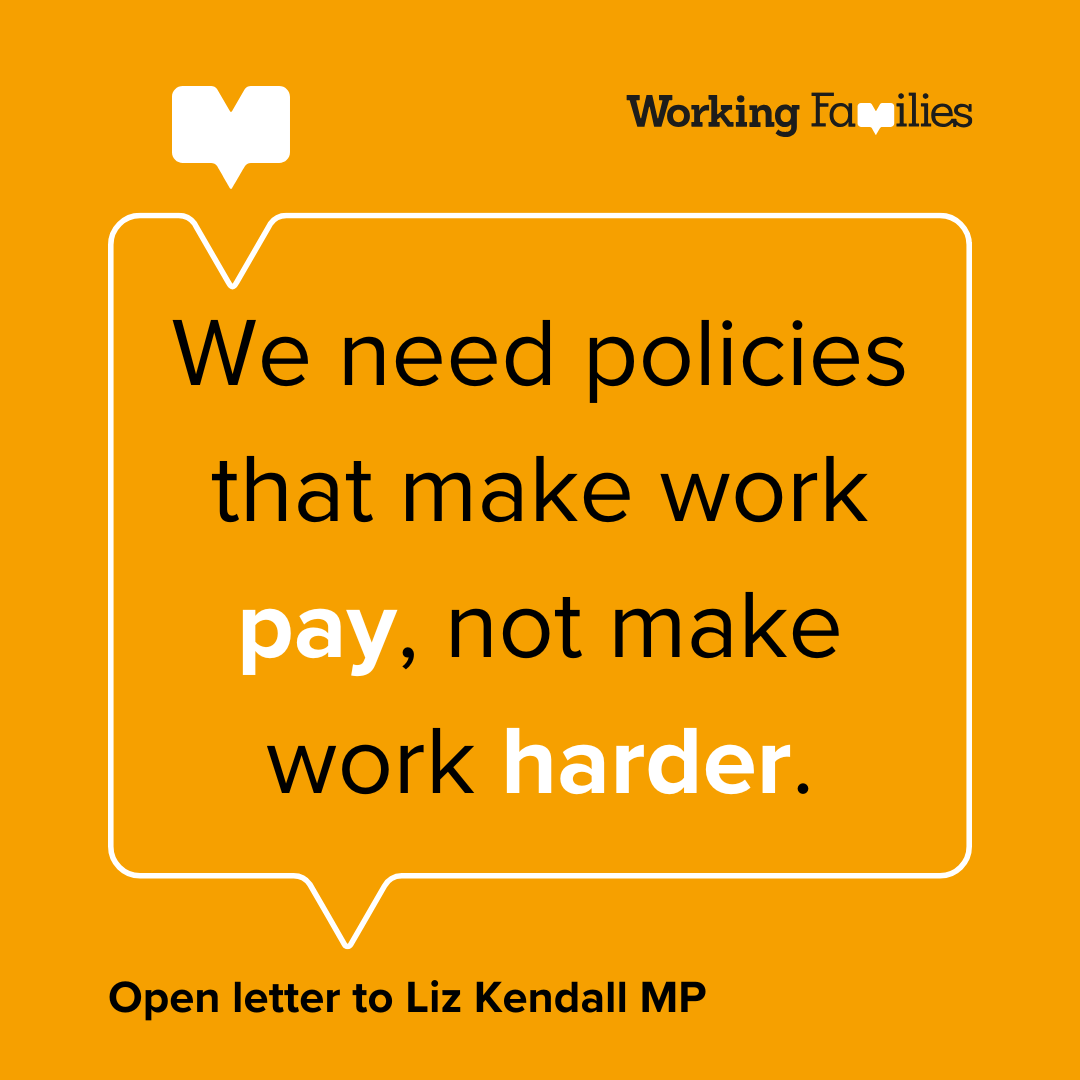Open letter to Liz Kendall MP
Published: 19 Mar 2025

At Working Families, our mission is to remove the barriers that people with caring responsibilities face in the workplace. We support parents and carers—both in work and those seeking employment—by providing free legal advice on workplace rights and equipping employers with the tools to foster a flexible, high-performing workforce.
We recognise the challenging financial landscape the government is navigating and welcome the ambition demonstrated through the Employment Rights Bill, as well as the commitment to reviewing parental leave. We believe the proposed reforms, such as expanding access to statutory sick pay and flexible working, will help remove some of the obstacles faced by working parents and carers, and we fully support these efforts.
However, we have significant concerns about the proposed reforms to Personal Independence Payment (PIP) and the Work Capability Assessment (WCA). While we understand the government’s aim to streamline and improve the system, the planned abolition of the WCA, the reduction of the LCWRA element for new claims, and shift towards an updated PIP system may make it more difficult for working parents and carers to access the vital support – such as specialist equipment and access to transport – that can enable them to work and live their lives. They will moreover face greater financial insecurity and debt, which can present barriers to entering and staying in work. Furthermore, we’re concerned that if fewer people qualify for PIP, they may also therefore not have access to financial support through the “health top-up” of Universal Credit – creating further barriers to work for disabled parents and carers.
Rather than focusing on cost-cutting measures that reduce access to benefits, we urge the government to prioritise policies that make work pay, and that enable more disabled people to access good quality work. Research shows that disabled people face a disability employment gap of 28.6% – if the government were to halve the disability employment gap, it would reach its 80% employment target.1 The support the government could offer disabled workers could include ensuring that individuals on insecure contracts, in lower skilled work or on low incomes – amongst whom disabled people are disproportionately represented2 – are able to access better paid, more secure jobs, and ensuring that disabled workers have access to the flexible working they need to make work accessible. Without the necessary support, we are concerned that more disabled parents and carers – alongside other disabled workers – may find themselves pushed out of work and reliant on benefits, or feel unable to try out work due to fear of losing their benefits.
While we urge reconsideration of these changes, we welcome elements of the proposed Green Paper, particularly the ambition to raise the basic Universal Credit rate for those seeking work or already in employment—an important step that will benefit the 40% of Universal Credit claimants who are in work. We also support the commitment to reviewing Access to Work to ensure it is fit for the modern workplace.
Additionally, we understand that some of the proposed savings may be reinvested into employment support programmes. One key area for investment could be expanding the Flexible Support Fund to assist parents and carers returning to work after parental leave, specifically parents returning to work after maternity leave who need childcare to return to work. This would help prevent families from falling into debt due to significant upfront childcare costs, aligning with the government’s aim of making work a priority over claiming benefits.
We would welcome the opportunity to discuss these issues further and explore how we can support your work. We would be grateful for the chance to meet and discuss both the challenges and opportunities outlined in this letter.
1 Work Foundation (2025), ‘Beyond the Office? How remote and hybrid working can help close the disability employment gap’, https://www.lancaster.ac.uk/work-foundation/publications/beyond-the-office.
2 Holland, P (2021). ‘Will Disabled Workers Be Winners or Losers in the Post-COVID-19 Labour Market?’ Disabilities, 1, 161-173. https://doi.org/10.3390/disabilities1030013; Work Foundation (2023), ‘The Disability Gap: Insecure Work in the UK’, https://www.lancaster.ac.uk/work-foundation/publications/the-disability-gap-insecure-work-in-the-uk.